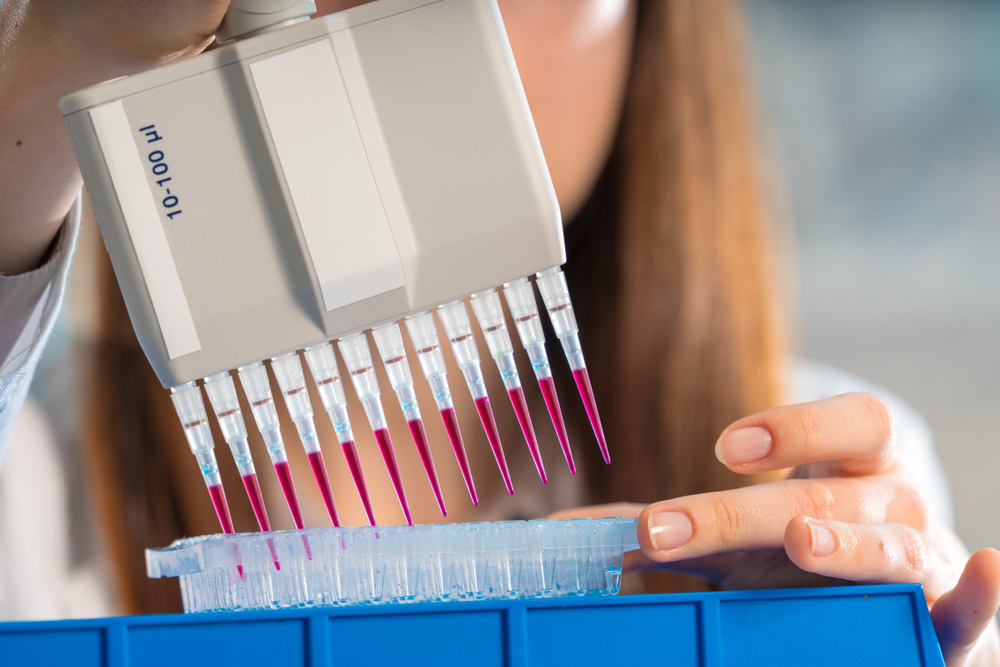Choosing the Perfect DNA Testing Kit: A Comprehensive Guide to Unlock Your Ancestry and Health Insights
Discover how to select the ideal DNA testing kit to explore your ancestry, health risks, and personal identity. This detailed guide covers the different types of tests, top providers, and key factors to consider, helping you make an informed decision to unlock your genetic secrets with confidence. Learn about Y-DNA, mtDNA, and autosomal tests, and understand which option suits your goals best. Empower yourself with insights into your heritage and health today.

Essential Factors to Consider When Selecting a DNA Testing Kit
In recent years, DNA testing has become increasingly popular as more individuals seek to discover their ancestral roots, understand their genetic health risks, and learn more about their personal identity. With the rapid growth of the market and a multitude of service providers offering a wide array of testing options—including some claiming to be free—making an informed choice has become more essential than ever. Navigating through the plethora of options can be overwhelming, especially for first-time users. Therefore, understanding the different types of DNA tests, their specific features, and the key factors influencing the accuracy and utility of each kit is crucial. This guide will walk you through everything you need to consider to select the most appropriate DNA testing kit for your needs.
Understanding the Different Types of DNA Tests
DNA testing is a powerful tool for exploring your heritage and health. There are primarily three types of DNA tests, each designed to serve specific purposes and offer unique insights. Knowing the differences between these tests will help you choose one that aligns with your goals.
Y-DNA Test: This test analyzes the Y chromosome, which is passed strictly from father to son. It is exclusively available for males, and it helps trace paternal lineage, deep ancestral origins, and surname studies. This test is particularly useful if you're interested in understanding your paternal line or exploring specific paternal haplogroups.
mtDNA Test: This examines mitochondrial DNA, passed from mother to child, regardless of gender. It provides insights into maternal ancestry, maternal lineages, and can reveal connections to distant maternal relatives. This test is valuable for tracing maternal heritage and understanding the migrations of maternal ancestors.
Autosomal DNA Test: The most comprehensive and widely used test, analyzing autosomal DNA inherited from all ancestors over the past five to six generations. It provides a broad picture of ethnicity, ancestral connections, and can identify relatives across both maternal and paternal lines. This test is ideal for those seeking detailed ancestry reports and connecting with relatives worldwide.
Knowing which type of test best suits your expectations is vital for a satisfying experience.
Top Providers and Their OfferingsChoosing the right DNA testing service depends on your purpose, budget, and the depth of insights you desire. Leading companies in this field include AncestryDNA, 23andMe, and Living DNA. Each offers unique advantages, so understanding their features helps in making an optimal choice.
**AncestryDNA:** Renowned for its extensive database and user-friendly experience, offering comprehensive ethnicity estimates and access to a large pool of potential relatives.
**23andMe:** Combines ancestry data with health insights, providing reports on genetic health conditions, traits, and risks alongside ethnicity analysis.
**Living DNA:** Specializes in detailed regional breakdowns, especially for users from the British Isles, and offers all three test types (Y-DNA, mtDNA, and autosomal).
In-Depth Look at Popular DNA Tests
AncestryDNA
One of the most popular choices worldwide, AncestryDNA boasts a vast database that facilitates detailed ethnicity estimates and matches potential relatives. It’s known for simplicity—collecting DNA via saliva samples and offering results that cover over 150 regions. Users can access their ethnicity breakdown and connect with relatives using the platform’s online tools. The cost typically hovers around $79, available for purchase through online stores or directly on their website. While highly accurate for many regions, it has limitations in East Asian lineages due to database constraints.
23andMe
Positioned as a combined health and ancestry service, 23andMe offers autosomal testing, enabling users to explore genetic predispositions to certain health conditions, inherited traits, and ancestry. The results include detailed reports on health risks, carrier status for inherited conditions, and wellness traits, making this an excellent choice for individuals interested in understanding their health aspects alongside ancestry. The basic testing package is priced around $29.99, with more comprehensive health screening options costing $69 or more. The sample is collected via saliva, and results are accessible online.
Living DNA
Standing out for its regional specificity and focus on detailed ancestry mapping, Living DNA provides all three test types—Y-DNA, mtDNA, and autosomal—for an affordable price point of approximately $99. Its specialty lies in accurately tracing ancestry within the British Isles and nearby regions, offering users an in-depth look at their regional origins. The sample collection involves brush-less cheek swabs, making the process simple and non-invasive. However, results may take a little longer to process, and the database is somewhat limited in scope for certain regions outside of Europe and the UK.
Why Choose a Specific Test? Consider Your Goals
When selecting a DNA test, your primary goal should determine your choice. For example, if you’re mainly interested in discovering your paternal lineage or conducting surname research, a Y-DNA test is best. For understanding maternal heritage, an mtDNA test is suitable. If your aim is to get a broad overview of your ethnicity, identify relatives across multiple lines, and understand genetic health risks, the autosomal test is the most comprehensive option.
Moreover, consider factors such as cost, the depth of information provided, data privacy policies, and the company's reputation for accuracy and customer support. For instance, services like AncestryDNA and 23andMe offer extensive databases and active user communities, facilitating easy connections with relatives and sharing insights. Living DNA, on the other hand, provides detailed regional data, making it ideal for users with specific geographical interests.
Conclusion: Making an Informed Choice
Choosing the right DNA test kit hinges on your personal goals, budget, and interest in health versus genealogy. Whether you aim to connect with distant relatives, learn about your genetic predispositions, or trace your maternal or paternal ancestors, understanding the different test types and providers helps you make a decision that maximizes your benefits. Remember to review privacy policies before submitting your DNA sample, and ensure that the provider complies with relevant data protection standards. With the right kit, you can unlock a wealth of information about your heritage and health potential, laying the foundation for a better understanding of yourself and your origins.





